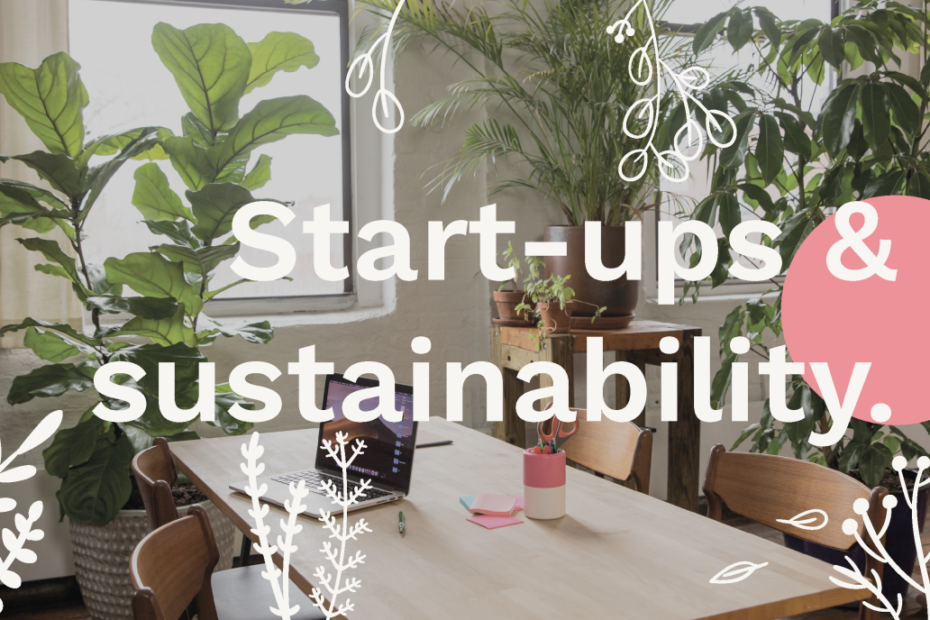Running a successful business today takes more than having great products or services. This is especially the case for startup companies that have a number of hurdles to climb when establishing a sustainable foundation while trying to become profitable over time.
To add to these challenges, modern businesses have much more accountability when it comes to addressing important sustainability missions within their organization. Considering the global impact that commercial organizations have on the environment, it’s important for startup businesses to set the right standards when it comes to their sustainability agendas.
However, it can be difficult to know where to start when looking to make a positive impact on the environment in your business. Below are some helpful strategies you can apply to your startup when supporting your sustainability goals.
Have The Right Awareness
Before you can start designing and implementing various sustainability initiatives, you need to be properly aware of your business’s environmental impact. This starts with a top-to-bottom evaluation of your operational state and pinpoint the areas that have the greatest impact.
The last thing you want to do is take a one-size-fits-all approach when incorporating more sustainable initiatives for your business. While adopting certain best practices is important, it’s critical to look at your business as a unique entity that can make more significant positive impacts when understanding and addressing the most significant sustainability risks.
Investing in Sustainable Energy Sources
Setting a precedent in your business is important right from the very beginning when proving that sustainability matters to you. One way to prove this is by investing in renewable energy sources to run various elements of the business.
While making your business completely carbon neutral may not be a reasonable ask, especially at the early stages of your startup’s development, there are ways you can integrate renewable energy into certain parts of your business. This could include the use of solar panels on your roof to charge machinery or provide sustainable power to smaller offices.
Reducing Your Packaging Materials
Depending on the type of business you’re running, the packaging you choose for your products or when relying on shipping materials can be largely impactful on the environment. By prioritizing reusable or biodegradable packaging, you can start to make a considerable impact when reducing your carbon footprint.
When the packaging supplies you use aren’t fully recyclable, they end up in landfills, which can add to carbon emissions that harm the atmosphere. Making an effort to ensure all of the packaging you use reduces this likelihood, you’re able to prove that you’re a responsible business that thinks about the health and safety of others.
Making Smarter Vehicle Choices
If your business relies on the use of a vehicle fleet, the type of transportation you use can have a significant impact. While traditional gas-powered vehicles are still the popular choice for businesses, their regular consumption of fuel releases harmful emissions into the air.
Modern businesses now have much more greener alternatives to choose from when creating their vehicle fleets. By opting for all-electric or hybrid vehicles over traditional combustion engines, your startup can take a substantial leap in the right direction with your sustainability initiatives.
Keeping Employees Educated
You won’t be able to achieve all of your business’s sustainability goals without getting the support of your employees. However, while following eco-friendly business practices and prioritizing carbon-neutral initiatives might be important to you, their level of importance may not be the same with all employees.
To help ensure all employees have the same level of motivation when supporting sustainability initiatives, it’s essential to keep them educated on their importance. This can involve having workshops and training sessions specifically designed to help establish shared values and build awareness of the importance of supporting better business practices.
Using Safer Cleaning Products
Not all of your sustainability efforts need to be driven by a variety of objectives and milestones. Simply being more conscious of the type of cleaning supplies you purchase for the business can be a great step forward.
Unfortunately, many of the commercial cleaning products that are available today contain harmful chemicals that can pollute local water sources. By using only organic, non-toxic ingredients in your cleaning supplies, you’ll start making a more positive impact on your employee’s health and those around you.
Establishing a Sustainability Committee
Another great way to get your employees more involved in your business’s sustainability efforts is to create a certain level of accountability when planning and implementing new initiatives. Establishing a “sustainability committee” with a select group of employees helps to establish a collective responsibility and engagement toward eco-friendly business practices.
Your sustainability committee can be responsible for brainstorming new ideas or tracking the success of initiatives already in place. This collaborative approach helps to encourage active involvement from everyone to help create a greener working environment.
Only Working With Responsible Suppliers
Placing a high priority on your own business’s sustainability initiatives is important, but you should also extend this importance to the suppliers you work with. When deciding on the type of freight companies or cloud service providers you partner with, it’s essential to evaluate their own sustainability practices.
You want to make sure that you are showing others how important sustainability is by supporting other organizations that have the same values as your own. This sends a powerful message to potential customers and your employees about the importance of ethical sources and eco-friendly business practices.
Fixing Up Certain Office Spaces
Depending on the age of your office building, there may be ways to integrate more sustainable practices into your workspace by completing certain renovation projects. By upgrading certain areas in your building, like doing a kitchen remodeling project or bathroom redesign, you can make different improvements that can make the space more efficient and waste less resources.
Retrofitting common areas to use more energy-efficient fixtures or appliances can significantly cut down on wasted water or energy use. This could include using low-flow faucets or dual-flush toilets. While these might seem insignificant, if you have a larger office, the savings can add up significantly over the course of the year. The plus side to this is that, just like when selling a residential property, office upgrades can add significant value to a property and make it much easier to sell or lease in the future.
Keep Sustainable Business Practices a Top Priority
Keeping sustainability a high priority for your startup is no longer an optional position to take. It’s a win-win for your business and the planet and can help others understand the importance of staying accountable as you grow while helping to build long-lasting loyalty from customers that will pay dividends long-term.
Author Information
 Author Name: Dalip Jaggi
Author Name: Dalip Jaggi
Author Bio:
Entrepreneur, technologist, and passionate business leader sum up the core of Dalip Jaggi, co-founder of Revive Real Estate, a PropTech company with a goal to democratize house flipping. Since its 2020-inception, Revive has since become the smartest solution for homeowners to maximize their home’s sales value across the nation.
